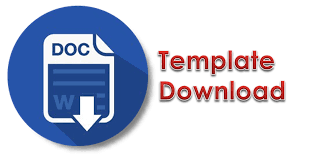Effective Feedback to Improve Students’ Writing Skills
Abstract
Feedback is one of the important elements of teaching and learning which aims to help learners to improve their quality of learning, including in writing activity. This research aims at conducting a library research on how teachers can give their effective feedback in writing classes. Several opinions by experts and previous research related to feedback for writing skills are compiled to provide some strategies that can be used by the teachers for giving effective feedback in writing activity. It is found that by considering the students’ need and purposes of writing, effective feedback that given by teachers can help the learners to know their level of proficiency and their weaknesses. By doing this, students can appreciate their own achievement and fix their weaknesses to make betterment in writing. Teachers can decide which certain kinds of feedback based on the writing purposes and the students’ needs. Therefore, by giving effective feedback, teachers are expected to encourage students’ motivation in improving their writing skills. And it is hoped that the further research will provide in information about oral and written feedback for writing activity.
References
Barkaoui, K. (2007). Rating scale impact on EFL essay marking: A mixed-method study. Assessing Writing, 12(2), 86–107.https://doi.org/https://doi.org/10.1016/j.asw.2007.07.001
Derewianka, B. (1998). A grammar companion. In NSW, Newton: PETA. http://proxy-net.snu.ac.kr/6a60485/_Lib_Proxy_Url/www.silvereye.com.au/documents/sample_pages/prod4665.pdf
Ferris, D. R., & Hedgcock, J. S. (2014). Teaching L2 composition: Purpose, process, and practice (3rded. Routledge.
George, M. W. (2008). The Elements of Library Research; What Every Student Needs To Know. In Journal of AHIMA / American Health Information Management Association(Vol. 64, Issue 2). Princeton UniversityPress. https://doi.org/10.1007/978-1-349-19936-5_3
Gibbons, P. (2009). English learners, academy literacy and thinking: Learning in the Challenge Zone. Heinemann.
Harmer, J. (2015). The Practice of English Language Teaching(5th ed.). Longman.
Hattie, J. A. C. (2009). Visible learning. A synthesis of over 800 meta-analyses relating to achievement. In Routledge.
Hyland, K., & Hyland, F. (2006). Feedback on second language students’ writing. Language Teaching, 35(2), 83–101. https://doi.org/10.1017/S0261444806003399
Hyland, K. (2002). Teaching and researching writing. Longman.
Hyland, K. (2003). Second language writing. Cambridge university press.
Hyland, Ken. (2007). Genre pedagogy: Language, literacy and L2 writing instruction. Journal of Second Language Writing, 16(3), 148–164. https://doi.org/https://doi.org/10.1016/j.jslw.2007.07.005
Imsa-ard, P. (2020). Being an Effective Writing Teacher: Understanding Writing Theories behind the Product, Process, and Genre Approaches. International Journal of Linguistics and Translation Studies, 1(2), 35–47. https://doi.org/10.36892/ijlts.v1i2.31
Junining, E. (2014). A Critique on Giving Feedback for English as a Foreign Language (EFL) Students’ Writing. Asian Journal of Education and E-Learning, 2(1).
Kerr, P. (2020). Giving feedback to language learners. Part of the Cambridge papers in ELT series. Cambridge University Press.
Khatibah, K. (2011). PenelitianKepustakaan. Iqra’: Jurnal Perpustakaan Dan Informasi, 5(01), 36–39.
Lee, I. (2017). Classroom Writing Assessment and Feedback in L2 School Contexts. Springer.
Mayasari, I., Kasim, U., & Zulfadi. (2017). The Effect Of Positive Evidence And Negative Feedback From TheTeacher On Students’ Writing In Subject-Verb Agreement. 5–24.
Nunan, D. (2003a). Practical English Language Teaching. International Edition, McGraw-Hill.
Nunan, D. (2003b). Practical English LanguageTeaching. McGrawhill.Park, E. (2006). ReviewM c l e on“The Effectiveness of Teacher’s Written Feedback on L2 Writing.
Riaz, M., & Akhtar, R. (2019). Formalityin Academic Writing: Investigating Stylistic Competence of Undergraduate EFL Learners. University of Wah Journal of Social Sciences and Humanities, 2(1), 1–20. https://www.researchgate.net/publication/335892543
Seow, A. (2002). The writing process and process writing. In J. C. Richards & W. A. Renandya (Eds.), Methodology in language teaching: An anthology of current practice(pp. 315) Cambridge University Press.
Shadiev, R., & Yang, M. (2020). Review of Studies on Technology-Enhanced Language Learning and Teaching. Sustainability, 12(2). https://doi.org/10.3390/su12020524
Sprouls, K. (2011). Teachers’ use of positive and negative feedback with students who are high-risk for emotional behavioral disorders.
Steele, V. (2015). Product and process writing: A comparison. https://www.teachingenglish.org.uk/article/product-process-writing-a-comparisonTuan, L. T. (2011). Teaching writing througha genre-based approach. BELT Journal-Porto Alegre, 2(1), 121–136. http:revistaselectronicas.br/ojs/index.php/article/viewfile/9361/7023.pdf.
Van der Kleij, F. M. (2019). Comparison of teacher and student perceptions of formative assessment feedback practices and association with individual student characteristics. Teaching and Teacher Education, 85, 175–189. https://doi.org/https://doi.org/10.1016/j.tate.2019.06.010
Wan Mohd Yunus, W. N. M. (2020). Written corrective feedback in English compositions: Teachers’ practices and students’ expectations. English Language Teaching Educational Journal, 3(2), 95. https://doi.org/10.12928/eltej.v3i2.2255
Wen, Y. (2013). Teacher written feedback on L2 Student writings. Journal of Language Teaching and Research, 4(2).
Wirantaka, A. (2016). Writing of Academic Texts in an EFL Context. Journal of Foreign Language Teaching and Learning,1(2).
Zemach, D. E., & Rumisek, L. A. (2005). Academic Writing: From Paragraph to Essay.Macmillan.
Copyright (c) 2021 Yasinta Wulandari

This work is licensed under a Creative Commons Attribution 4.0 International License.







